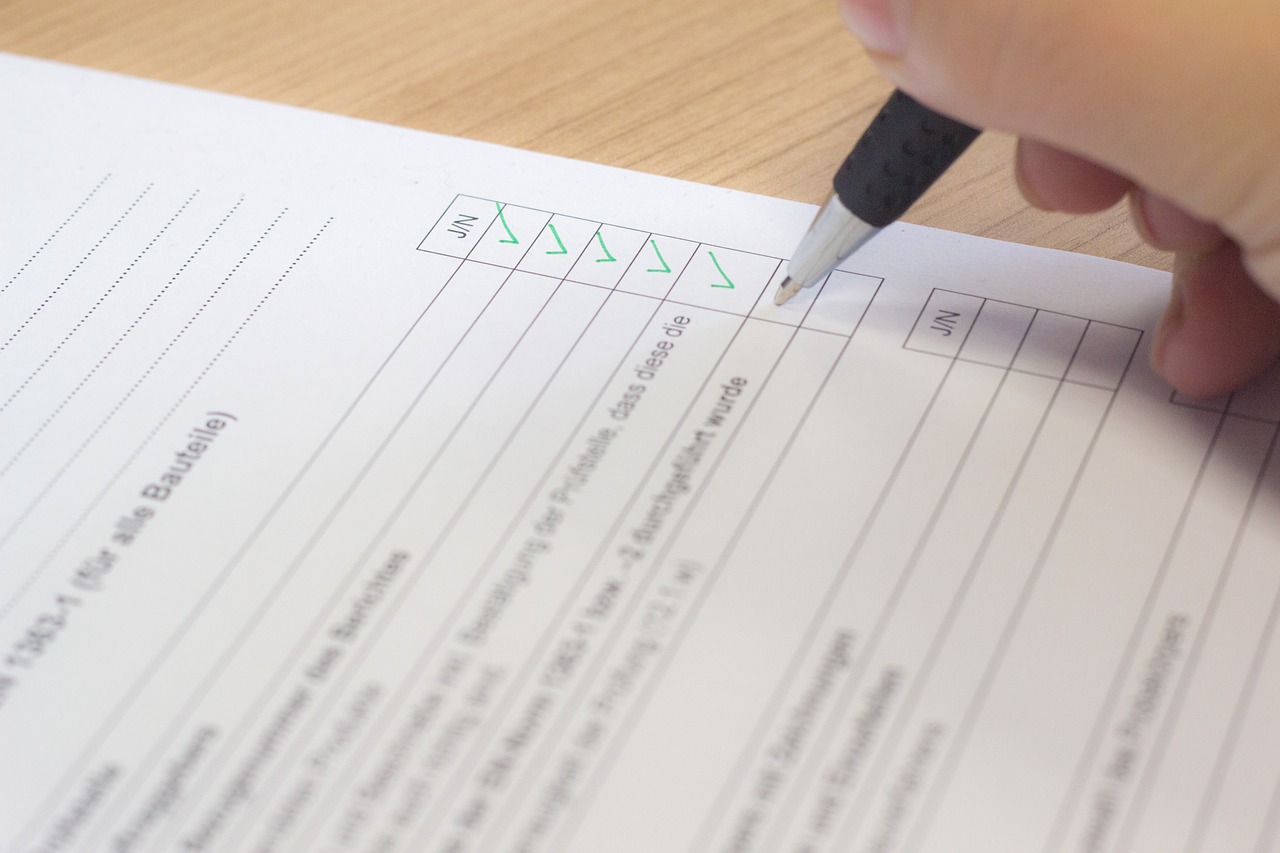General Advice
Nearly all traditional job listings require their applicants to fill out application forms . As for why, the reasoning may vary on a case-by-case basis, but most employers use this tedious application component to record your personal and employment history, as verified by you or other references.
Granted that there is no ‘common application’ format, and, for the fact that different employers may evaluate the application form with varying degrees of scrutiny, we can’t pinpoint an exact significance of this component.
- Even still, it should be noted that the prominence of the application form is most likely second-hand to more feature-esque submission types such as the resume or cover letter.
CAREER
TIP
We would focus on perfecting other, more integral componets before reserving your attention to application forms. Read through our guide on resume formats.
The main focus on application forms is straying away from an emphasis on appeal or perceived enticement; rather, you want to keep your information as objective, accurate, and void-of-errors as possible
Following directions:
- An application that is incorrectly or partially filled out will signal red flags to employers.
- Try to accurately gauge how much should be written per response, rather than overwhelming hiring managers with an excess or shortage of information.
Be neat:
- Especially in the case of hand-written application forms, legibility or other measures of neatness cannot be understated.
- Your answers should be written in clear print or with black/blue ink, free of grammar and punctuation errors.
Show honesty:
- By some estimates, as much as 90 percent of employers are said to conduct some type of background check through the process of hiring an applicant.
- Stretching the truth may cost you your job offer, or in severe cases, even your position after-the-fact.
- Everything that is told on your resume should be genuine, anything less is not worth the risk.

Employer's Perspective
Picking apart the thought process of a hiring manager collecting data through the application form will pinpoint what information is necessary to include. It’s worth bearing in mind the following reasons a resume manager may have for collecting information…
- Obtaining additional, ‘record-keeping’ data
- Testing an applicant’s ability to follow instructions
- Evaluating applicants’ attention to detail through neatness, spelling, and grammar
- Creating a record of employment history verified by signature
- Standardizing information gathered between applicants
On-Site Preparation
Especially with relation to on-site application forms, which are filled out without the luxury of excess time, you must focus on deciding what is needed to prepare. Bringing along any necessary documents, as well as a list of relevant qualifications will ensure you have the information required.
1.Briefly research the company:
- Find out which skills are being asked for, as well as how your relevant qualifications match up with their requests.
- On a personal note, find out what aspects of the role attract you, elaborating specifically on how this correlates to why you want to contribute to their cause.
- In case you’re unsure as to where to start, information can usually be found on ‘About us’ or ‘Career’ sections of company websites.
2.Bringing a resume copy:
- Carrying a resume will aid you in filling out sections on employment history.
- The information brought should widely cover the start and end dates of past employment, job duties, and contact information of three or more references.
CAREER
TIP
In addition to your resume and cover letter, we would also pin a recommendation on bringing your driver's licence and insurance information to on-site application-forms.
3.Skills portfolio:
- A quick rundown of your skills/competencies will give the employer a taste of your work abilities.
- We recommend bringing along a brief, yet information-dense skills portfolio to showcase.
4.Office supplies:
- Albeit a seemingly obvious suggestion, bringing along some pens, correcting fluid, and blank pieces of paper may help you avoid the disaster of having to scramble to find these supplies.
- In any case, and at all cost, make sure you’re not having to ask your employer for such utensils.
5.Dress standards
- We recognize that the application form is far from the end-all be-all point of evaluation through the application process.
- Even still, dress as you would for an interview.To brush up on those standards, review our comprehensive interview dress guide.
Filling in Information
In spite of the fact that most employers customize their application forms to match the position at hand, there are still some general guidelines through which you can educate your filling in of information.

1.Ask for an additional copy of the application form, allowing you to reserve a copy as the ‘draft’. If for some-odd reason the employer can’t match this request, simply use a blank piece of paper as the preliminary copy.
2.Read through carefully, trying to make insights on ‘tricks’ or ‘silver-linings’ the employers may try to catch you with. Remember, among the primary uses of the application letter is for the employer to gauge whether or not the application can catch hidden details.
3.Write clearly, evaluating how much space is provided for a response before you begin writing. If necessary, use a scrap piece of paper to practice handwriting beforehand.
4.Never leave a question blank; instead, reply ‘not applicable’ or ‘N/A’ as an alternative response. Eluding to a statement such as ‘refer to my resume’ is also a mistake. Keep your employer focused on the subject at hand.
5.Avoid elaborating on negative answers. Rather than dwelling on past mistakes, briefly explain enough to establish honesty, but no more detailing passed that point.
CAREER
TIP
When it comes to filling out application forms, the brief and concise information included should mirror the content found in cover letters.
6.When ordering employment history, be sure to follow a format that is logical. The typical convention is to list most recent positions first, with less pertinent information following it.
7.Don’t forget to list off any applicable education/training experience. If asked, make sure you’re caught up on the dates, names, and certifications of such programs. Citing special awards or honors may additionally bring credibility to your report of educational experience.
8.Demonstrate your interest for a position by recalling past experience relating to the job title. You can use the answers throughout the forms not only to prove qualification, but also to stand out from the rest of the pack of applicants as someone with a commitment to the company itself.
9.Allude to salary and benefits, without mentioning a specific figure. Some employers screen application forms and weed out those with fixed earnings. With that said, it’s still generally a good idea to hint at such topics, as a way to demonstrate your willingness to negotiate.
Setting Apart Your Application
Whenever such an opportunity presents itself, it’s wise to further cement your impression on your employer by providing additional comments or qualifications. In many cases, the application form will feature an ‘additional comments’ section, wherein strengths, accomplishments, and personal details can be stressed.
A main factor to keep in mind when doing so, however, is that such information needs to be focused on the job at-hand.
- Don’t stray away from the intent of the application by listing off personal hobbies or other irrelevant information.

Rereading & Submission
Before the thought of submission crosses your mind, make sure to carefully reread. A minor grammar or punctuation mistake, albeit insignificant at face-value, holds the power to throw off an entire application. An applicant with little regard to attention-to-detail demonstrates their unwillingness to adapt to changing work conditions.
CAREER
TIP
If the job listing requests a hand-written or printed copy, be sure to use high-quality paper, which signifies your attention-to-detail and thoughtfulness.
Remind yourself of what format was requested in the initial job listing.
- Picking up on these details will help you to avoid leaving a bad impression, such as in the case of the employer requesting a hand-copy and making the mistake to submit digitally.
- Not only will a lack of attention-to-detail foment awkwardness between the employer-applicant relationship, it may result in your application being tossed out entirely, don’t forget to show caution!
Checklist
We advise briefly running through the following checklist as a means to evaluate whether your application forms have been fully completed.



